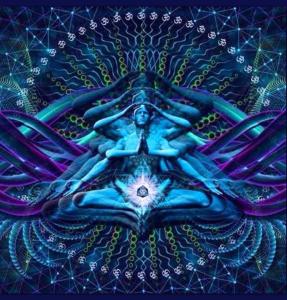
The world is rife with conflicts arising from thoughts, ideologies, messages, and cultures. These conflicts often stem from the way we perceive the world—through the lens of our judgments and biases. This perspective creates a reality that is filtered through likes, dislikes, and subjective perceptions, leading to disharmony. Vedanta, an ancient Indian philosophy, provides the strength and capacity to transcend these conflicts and inconsistencies in life. By applying its principles, we can achieve a clearer vision of the world and our place within it.
Reflections on Happiness and Freedom
Consider the question: Are animals happier than humans? Unlike us, they do not engage in activities like shopping or dining out. Observing a bird in flight, we might wonder if it experiences a sense of freedom that eludes us. Such reflections prompt us to introspect about our own lives and what truly brings us happiness. The Bhagavad Gita, a seminal text in Hindu philosophy, offers profound insights and tools for living a conflict-free life even amidst the world’s chaos. It encourages us to focus on our inner selves rather than external distractions, guiding us towards a more peaceful existence.
Yoga: Beyond Physical Practice
Yoga is often misunderstood as merely a series of physical postures. However, it is a comprehensive system that encompasses physical, mental, and spiritual practices aimed at achieving harmony and balance. The physical postures, or asanas, are just the beginning. True yoga integrates the teachings of the Gita and Vedanta, emphasizing the importance of understanding the purpose behind the practice. Yoga is about achieving inner peace and tranquility, fostering a state of harmony that can take a lifetime to cultivate fully. Without the deeper philosophical context provided by the Gita and Vedanta, the practice of yoga remains incomplete.
Redefining Success
In contemporary society, success is frequently measured by material wealth and social status. This pursuit often leads to relentless competition and environmental degradation. The societal mantra of “more is better” drives individuals to accumulate possessions—be it houses, cars, or other luxury items—without considering the broader implications. Vedanta challenges this notion by advocating for a planet-centric rather than human-centric approach to life. It teaches that all life forms are sacred and deserve respect. We do not have the right to destroy nature for our gain. The Isha Upanishad, another foundational text in Vedanta, reinforces the idea that life should be lived with an attitude of respect towards all beings.
The Law of Karma
Living harmoniously means respecting others’ space and refraining from destructive competition. The law of karma, which emphasizes cause and effect, teaches us to treat others as we wish to be treated. Our actions towards others ultimately reflect back on us. Vedanta stresses that the highest goal is self-knowledge, which leads to true immortality and a profound connection with the divine. Ignorance, on the other hand, keeps us trapped in a cycle of material pursuits and dissatisfaction. By focusing on self-knowledge, we can transcend this cycle and achieve lasting peace and fulfilment.
Cleansing the Mind
The Yoga Sutras identify five impurities that hinder our spiritual growth: ignorance (Avidya), wrong identity (Asmita), attachment (Raga), hatred (Dwesha), and fear (Abhinivesha).
- Ignorance (Avidya): This is the root of all other impurities. It involves misunderstanding reality based on superficial perceptions. For example, seeing the sky as blue or stars as mere points of light without understanding the deeper scientific and philosophical truths behind these perceptions.
- Wrong Identity (Asmita): This impurity involves misidentifying oneself with the body and ego. It leads to a self-centered view where interactions are driven by selfish interests. Overcoming this requires realizing that our true self extends beyond the physical body and ego.
- Attachment (Raga): This impurity is characterized by craving for possessions or people, leading to impulsive behaviors. Such attachments often result in suffering when we do not get what we desire. Letting go of these attachments is crucial for inner peace.
- Hatred (Dwesha): Hatred arises from repulsion towards others based on superficial judgments. This can manifest as intolerance towards different looks, religions, or ideologies. Overcoming hatred involves cultivating unconditional love and recognizing the common humanity in all beings.
- Fear (Abhinivesha): Fear is often the first expression of ignorance. It stems from a lack of trust in the divine and the interconnectedness of life. Trusting in a higher power and developing confidence through prayer and meditation can help overcome fear.
Cleansing these impurities requires regular practices of prayer, meditation, and reflection. The Bhagavad Gita advocates for disciplined practices that lead to inner transformation.
Inner Transformation
The root of our problems lies within us, not in the external world. Changing our perspective and cleansing our minds from impurities allow us to see the world differently and resolve inner conflicts. The Bhagavad Gita and Vedanta provide profound tools for this inner transformation. By embracing self-knowledge and practicing regular meditation, we can align our lives with the principles of karma and achieve harmony within ourselves and with the world around us.
In a world rife with turmoil, Vedanta and Yoga offer timeless wisdom for living a conflict-free life. By integrating the teachings of the Bhagavad Gita, practicing yoga in its truest sense, and adhering to the law of karma, we can transcend the conflicts that arise from our judgments and biases. These practices guide us towards self-knowledge, inner peace, and a harmonious existence with all beings. In a world filled with turmoil, these ancient philosophies provide a path to lasting tranquility and fulfillment.













